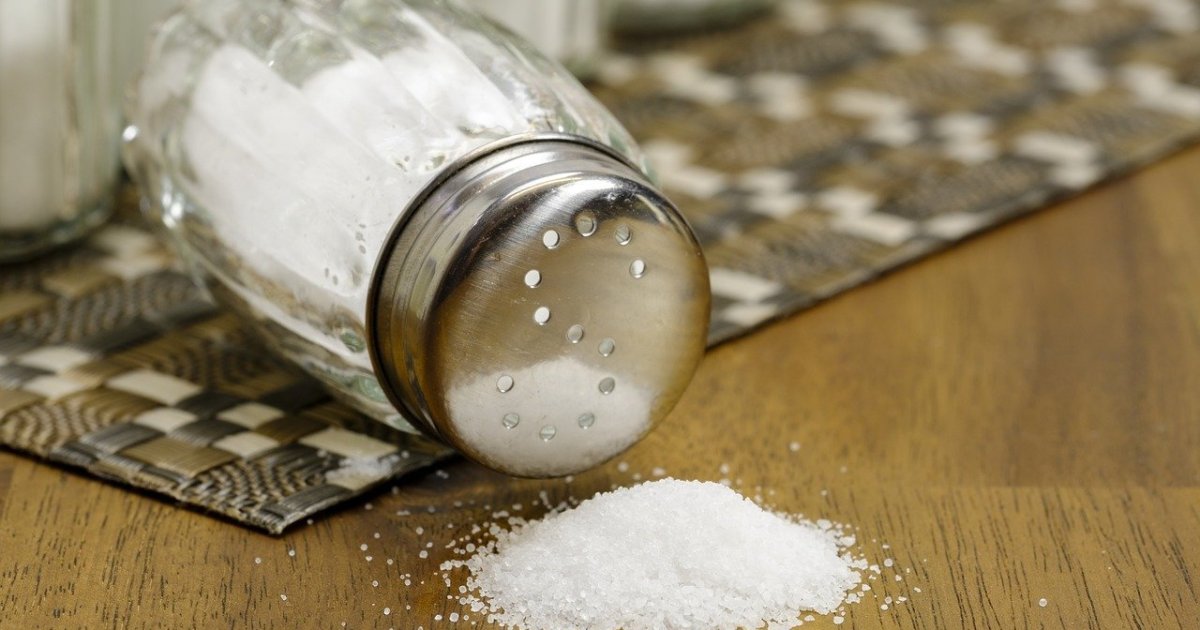Salt is the only edible rock, since it was discovered by the shepherds very old, to be used throughout the ages in cooking and trade, and it takes its place in all the kitchens of the world.
For decades, however, he was accused of harming health.
The World Health Organization has been warning against consuming more than 5 grams (less than a teaspoon) of salt per person per day, as this may contribute to high blood pressure, heart disease and stroke.
And 13 studies over a period of 35 years agreed that eating an additional 5 grams of salt per day increases the risk of cardiovascular disease by 17%, and stroke by 23%, according to the BBC website.
However, the researchers of those studies "admit it is difficult to know, whether these results occur due to the influence of salt alone, or because of the eating and living style."
This will be the reason for the start of a round of new studies, which shook the old constants, by emphasizing the importance of salt and its usefulness to human health.
salt is innocent
Although the German Food Association recommends that the amount of salt consumed should not exceed 6 grams per day, "the reality is that the presence of salt in many prepared foods, cheese and bread, inevitably leads to exceeding the recommended amount of salt per day for each person."
And a Canadian study, conducted over an 8-year period, and published in 2018, and included 95,000 people from 18 countries, including Canada, Sweden, Poland and China, showed that “salt is not harmful to the extent that it is common, and there should be no concern for the individual’s consumption of 12 grams of it per day (double recommended amount).
The study also examined the extent to which salt is responsible for high blood pressure, which in turn leads to heart attacks and strokes and the possibility of death, and found that "it is true that salt increases blood pressure, but it does not necessarily cause circulatory diseases, or the possibility of death."
She stressed that "those who dispense with salt, or reduce their consumption by a large percentage, may be more likely to die early."
Another study, published in the European Heart Journal in 2020, came out with new results that one of the researchers involved in it described as “amazing.”
It states that "recommendations to reduce sodium may be ineffective, its effect on other dietary factors is uncertain, and its efficacy in reducing cardiovascular disease is not established."
Not only that, but "eating twice the recommended amount of salt per day may increase life expectancy", a conclusion that turns the theory that "salt is harmful" on its head.
Salt is useful
Professor Franz Messerli, a Swiss cardiologist who led the latest study, says that women in Hong Kong have the highest life expectancy in the world, living on average 87 years, weighing an average of 56 kilograms, and eating 9 grams of salt per day, which is what It's a gram more than the average Briton, who eats twice as much as the average American and still lives longer."
After he and his team compared salt consumption to life expectancy in 181 countries, and after reviewing more than 500 research papers on salt consumption, blood pressure and heart disease, Messerli concluded, "The vast majority of us don't need to monitor our salt intake, but rather more. The salt will be good for their health."
There are many things that deplete salt from the body, such as "exercise, caffeine and medication".
He advised to avoid reducing salt intake during exercise, "as sweating leads to a lack of salt in the body. It raises the heart rate, stress hormones, and insulin levels, and may lower blood pressure."
Messerli's belief that there is no need to monitor salt intake is in support of the claims made by Dr. James de Nicolantonio, a heart research scientist in the United States, in his book The Salt Fix in 2017, where he said that "approximately 80% of people Those with normal blood pressure are not at all sensitive to the effects of salt in raising blood pressure.
Only a small percentage of people are "salt sensitive", while the majority are largely immune to its negative effects.
The secret is in moderation
It is not easy to convince people to give up salt, and the best thing is to advise them to eat it in moderation.
Sir George Pickering, Professor of Medicine at Oxford University, wrote more than half a century ago that "a strict low-sodium diet is monotonous, and the adherence to it requires strict religious asceticism".
So the Canadian study authors note that their research does not apply to countries with moderate salt consumption, such as England and the United States.
Because salt intake is linked to cardiovascular disease and strokes, only in societies that consume more than 12.5 grams of salt per day, such as China.
They also cautioned that "the effect of salt consumption on blood pressure and heart health varies from person to person, based on factors related to race, age, weight to height, general health, and family medical history."
There are people who are "genetically sensitive to salt", which makes them more susceptible to high blood pressure, than others, as a result of eating it.
The researchers also revealed that "eating less than 5.6 grams, or more than 12.5 grams of salt per day, may cause health problems."
Very low levels of salt lead to more heart attacks and deaths.
Which means that eating salt in moderation may be the only preventive way, given the evidence that "eating moderate amounts is beneficial for cardiovascular health, while consumption that is too high, or too low, may be more harmful."

